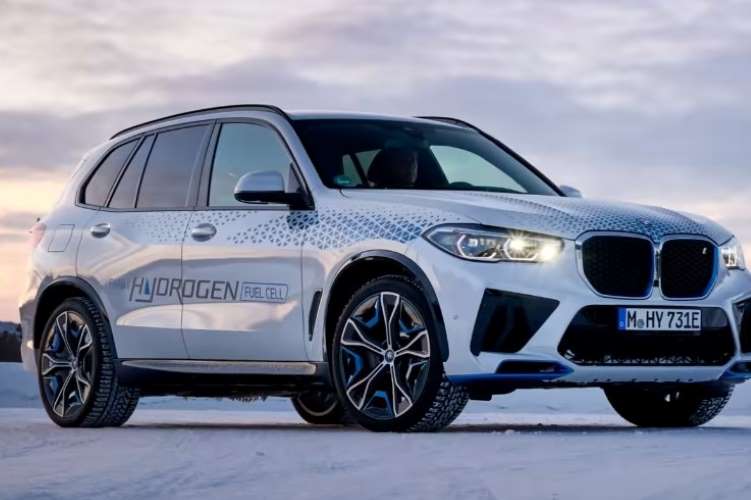
Hydrogen fuel cell technology received a major boost with BMW announcing mass production of fuel cell cars from 2025 in collaboration with Toyota. This comes at a time when industry watchers thought hydrogen fuel cell cars all but lost out to battery-driven electric vehicles in clean mobility sweepstakes. The German giant has committed to make millions of cars every year under its deal with Toyota.
In 2021, a meagre 15,500 units of hydrogen fuel cell vehicles were sold, while electric vehicle makers managed to sell more than 6.6 million units.
The hydrogen fuel cell technology will suit larger SUVs, BMW sales chief Pieter Nota said in an interview with Nikkei Asia. The German automobile giant had unveiled the iX5 concept in September 2021. It had announced its intention to produce the sport utility vehicle on a smaller scale this year.
READ I Explained: Can Chinese economy weather the current crisis
Toyota is a world leader in fuel cell technology. It is set to launch the second generation Mirai mid-size sedan after the first-generation vehicle completing eight years in the market. BMW had fallen behind Toyota and Hyundai in the hydrogen fuel cell race despite creating a production-ready hydrogen vehicle between 2005 and 2007.
BMW has a presence in the battery-driven electric vehicles market too with the i4 coupe and iX SUV. The collaboration allows both companies to hedge their investments in zero-emission vehicles. The two automobile giants had collaborated earlier to develop the iX5 Hydrogen-based on BMW X5 as well as sports cars BMW Z4 and Toyota Supra in 2019. The German carmaker expects EVs to account for half of its corporate brand sales by 2030. The German automaker’s next-generation platform, Neue Klasse, may accommodate both EV and fuel cell vehicles.
Advantage hydrogen fuel cell cars
Fuel cells vehicles have several advantages over battery-driven electric vehicles. They can cover longer distances and can be refuelled in less than five minutes. The biggest problem they face is the lack of public hydrogen filling stations in most parts of the world, inhibiting mass production of such vehicles. The other problem is the heavy price tag.
While details of the 2025 BMW are still under wraps, the X5 hydrogen vehicle launched in 2019 had two reinforced tanks with a capacity to contain 6kg of hydrogen. One kilogram of hydrogen can power a fuel-cell vehicle close to 100 kilometres.
Fuel cell electric vehicles were being produced on an experimental basis for several years. But their mass production began only in the 21st century. In 2021, the global sales of fuel cell cars recorded an impressive 84% jump over the 2020 figure. The Hyundai Nexo and the Toyota Mirai are the most popular products with a combined global market share of 98%. South Korea, the US, Japan and Europe are the is the biggest markets for hydrogen fuel cell cars at present.
Hydrogen fuel-cell technology has improved dramatically in recent years in terms of efficiency and safety. It combines hydrogen and oxygen atoms in an electrochemical reaction to generate electricity, and emits no pollutant. Fuel-cells are several times more efficient than internal combustion engines. This quality makes it suitable for all vehicles from cars, buses and trucks to trains, aircraft and ships.
The Inflation Reduction Act 2022 will fuel the sales of hydrogen electric vehicles in the United States. The legislation will provide $7,500 tax credit for hydrogen fuel cell cars. Additionally, The IRA will offer tax credit of $3 a kilogram for clean hydrogen production.
With BMW and Toyota vying with Hyundai to mass produce fuel cell vehicles, the US car market will see them challenging the battery electric vehicles. The lighter, easy to fill gas can corner a major chunk of the market with improved hydrogen infrastructure.
Fuel cell cars will get another boost from the falling prices of green hydrogen, which is becoming the green fuel of choice for energy firms and other industries looking to replace fossil fuels as the source of energy. In the changing scenario Tesla CEO Elon Musk, who derided hydrogen fuel cells as silly, may not find many backers.
Anil Nair is Founder and Editor, Policy Circle.

